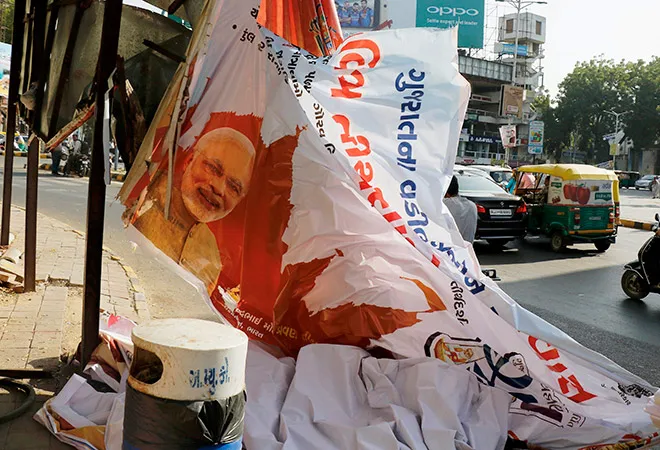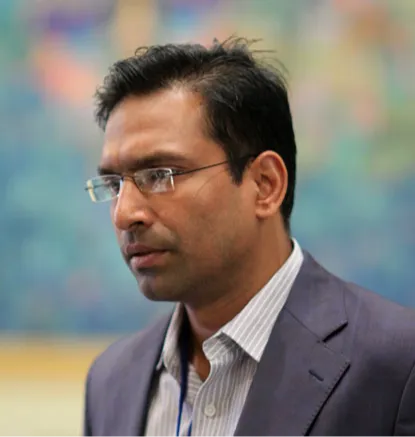-
CENTRES
Progammes & Centres
Location
The Gujarat poll date controversy demands urgent reforms to the Model Code of Conduct

With the Election Commission of India (ECI) announcing the dates for Gujarat assembly elections on October 25, the controversy seems to be ebbing. Never in the recent memories, such a huge controversy erupted over poll dates where the reputation of the apex poll body came for intense questioning over its controversial decision to skip the announcement of dates for the assembly elections in Gujarat while declaring the schedules for the Himachal Pradesh elections on October 12. Suspecting the ECI’s clear partisan favour to the ruling Bharatiya Janata Party in Gujarat, which is seeking to win a sixth term, the Opposition heavyweights, made no-holds-barred attacks on the autonomy and extremely-respected integrity of the apex poll body.
What added to the miseries of the Commission is its poor defence of the deferment of Gujarat poll dates. The Chief Election Commissioner (CEC) AK Joti’s explanation, which came after several days of silence, was utterly unconvincing. His defence that the Model Code of Conduct (MCC) would disturb the relief and rehabilitation operations in seven flood-affected districts of Gujarat invited strong rebuttal from several former commissioners including SY Quraishi and TS Krishnamurthy, a series of events unfolded after October 12, has made the Commissioner’s position extremely untenable.
The Gujarat government’s slew of new schemes in quick successions and the Prime Minister’s back-to-back visits to the state in the of a week wherein he announced a number of freebies for Gujarat, including the much-awaited ferry service between Gogha and Dahej, have taken the steam out of the CEC’s stout defence.
What has surprised many analysts is that the same institution, which is being accused of doling out favours to the ruling party, has, in recent times, played a stellar role during the Congress vs BJP drama over floor-crossing of MLAs and backroom manoeuvres in Rajya Sabha polls. Overcoming extreme political pressures, the Commission spoke the language of the statute book and took decisions, much to the annoyance of the ruling party. What can explain the electoral body’s sudden U-turn? There is little doubt that the ECI has succumbed to the pressure from the ruling political party, and the proof for the same lies in the slew of announcements followed by the VVIP visits to the state.
Why blame the ruling party alone? After all, in multi-cornered and tightly-contested elections, where a percentage or two can swing the fate of a party, everyone competes with each other in announcing populist schemes and freebies mostly closer to the election dates. And this trend is not unique to India.
All democracies have their troubles with issues such as populism and culture of freebies, and they have little qualms, as at the end of the day voters are enlightened enough to judge the parties and candidates.
The problem, however, with India is that such negative electoral malpractices are being countered with a blunt instrument called the Model Code of Conduct (MCC). While there is no denying the fact that the MCC has worked at some levels to ensure a level-playing field for opposition parties and curb the rampant misuse of state machineries in influencing the outcomes of elections, the MCC has spectacularly failed on many other promises such as curbing money power and vote-buying, to name a few. It has not stopped parties from spending millions and candidates from resorting to all kind of unethical practices to win elections. Despite glaring failures, the ECI has been single-mindedly expanding its scope and applications each election.
The election code, which emerged in 1971 from voluntary willingness of parties to subject themselves to a certain code of ethics, has, over the years, become an all-pervasive code nearly paralysing every activity during the electioneering process.
So much so, even normal service delivery activities such as construction of new roads or provision for drinking water facilities need the ECI’s approval. As a renowned commentator had remarked, “The model code brings policymaking to a halt in the world’s largest democracy.” The biggest irony is that there is little empirical data, even by the Commission, to prove how effective the MCC is. On the contrary, one is witness to many bizarre outcomes, including the ruling parties often resorting to thuggery and manipulation to escape the model-code obligations.
One hopes the Gujarat election fiasco will lead the ECI to do some introspection about its decision. While the Commission needs to stay above suspicion, the incident should be an occasion to revisit many intrusive provisions of the MCC. The ECI should remember that among the 20 odd democracies that have evolved some form of election conduct, none wield such absolute power as India’s Election Commission. In short, rather than expanding the MCC, the Commission should seek real regulatory and punitive powers which it lacks badly. The ECI’s strength is the public faith in its ability and integrity. Every survey shows that more than 80 per cent of Indians trust the Commission. It must not do anything to forgo that.
This commentary originally appeared in DNA.
The views expressed above belong to the author(s). ORF research and analyses now available on Telegram! Click here to access our curated content — blogs, longforms and interviews.

Niranjan Sahoo, PhD, is a Senior Fellow with ORF’s Governance and Politics Initiative. With years of expertise in governance and public policy, he now anchors ...
Read More +